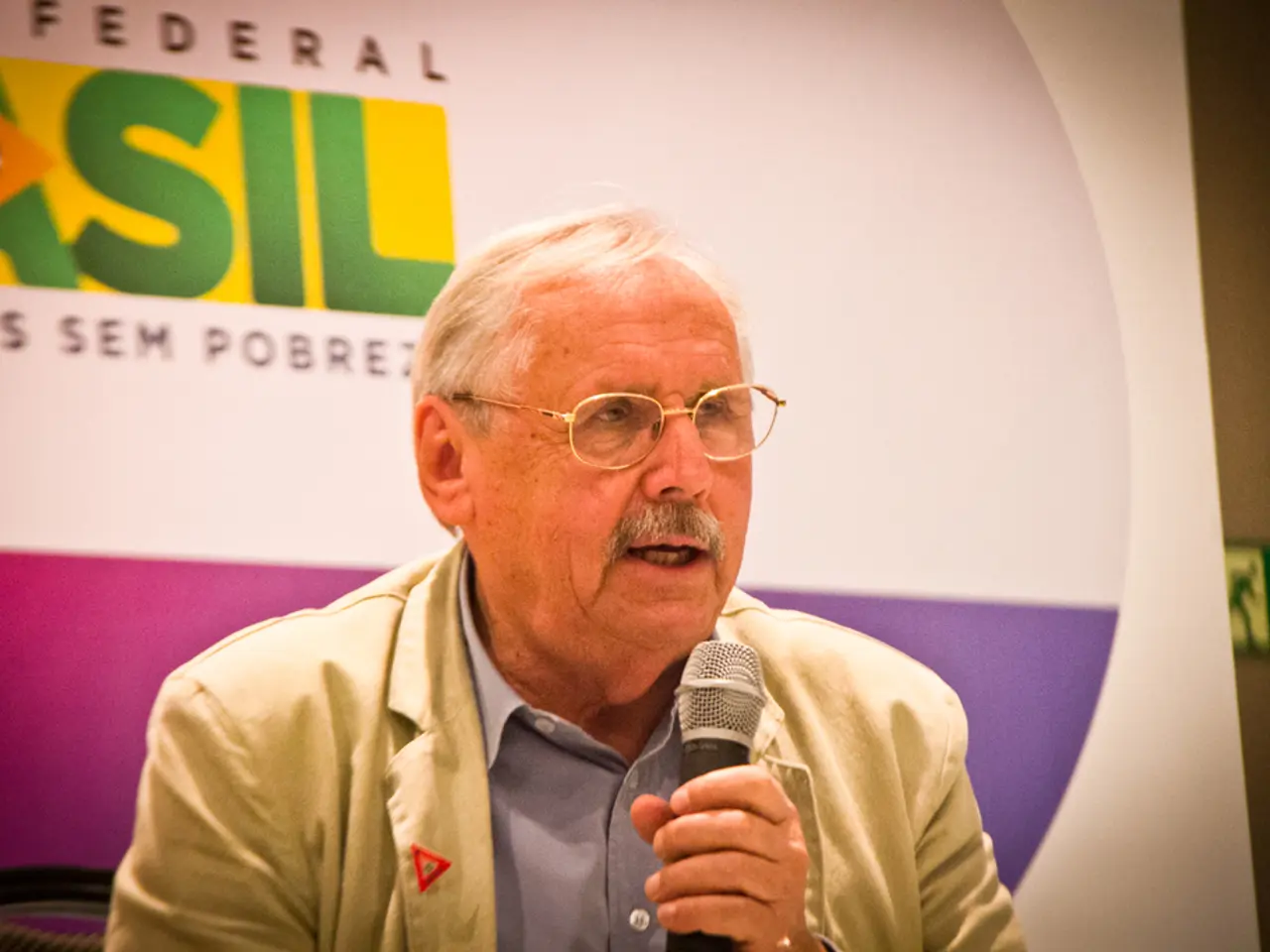Fed Chairman Powell firm in his intention to complete his entire term in office
In the current economic landscape, Jerome Powell, the Federal Reserve Chair, remains steadfast in his commitment to complete his term through May 2026. Despite persistent political pressure, particularly from former President Donald Trump, Powell has been adamant about maintaining the Fed's independence.
Trump, who has publicly expressed dissatisfaction with Powell's cautious approach to interest rate cuts, has accused Powell of being "too late" to lower rates during his presidency. However, it seems Trump may allow Powell to finish his term, acknowledging that it's ending "pretty soon anyway."
The Fed's decision to keep interest rates steady this year has been influenced by recent inflation dynamics and concerns about tariffs. Although there had been talk of possible rate cuts later in 2025, the Fed appears cautious about acting prematurely due to inflation risks.
Trump and his aides have sought to make Powell's tenure as difficult as possible, homing in on the Fed's pricey renovation as a weapon to increase public pressure on Powell. Some Republicans, however, have encouraged the White House to back off its criticisms of Powell, arguing that it'll benefit Trump more when Powell does begin lowering interest rates if it doesn't come amid a cloud of political pressure.
Powell has indicated to associates that he's keeping his head down, focusing on carrying out the Fed's work without consideration of political reverberations. His resolve to finish his term has won praise from Democrats, including Jared Bernstein, who chaired the Biden-era Council of Economic Advisers. Powell has earned a reputation as a studiously non-partisan "straight shooter" who relies on data to make decisions.
Trump has openly said he hopes Powell resigns and has accused him of trying to damage his presidency. However, Powell has shown no signs of stepping down, understanding the importance of his role in maintaining the Fed's independence and the potential negative market upheaval that would follow any hasty decisions.
Senator Rounds believes Powell is in the right position and respects him for the position he's taken. Bernstein believes Powell is engaged in protecting the institution of the Fed, understanding that his resignation would undermine the institution's longstanding freedom from political interference.
As we move forward, it's clear that Powell's commitment to the Fed's independence and his non-partisan approach will continue to shape monetary policy decisions. The Fed is widely expected to hold rates steady next week and delay any shift in policy until the fall, reflecting Powell's cautious and data-driven approach.
- In the realms of both politics and economic development, Jerome Powell's enduring resolve to complete his term as Federal Reserve Chair serves as a beacon of personal growth and leadership.
- Migration of economic policies is evolving in light of Powell's unyielding stance, signifying a shift in career development and policy-and-legislation agendas.
- With mounting pressure from political figures like former President Donald Trump, Powell's continued focus on mindfulness and maintaining the Fed's independence is a testament to his resilience and commitment to self-development.
- The impact of Powell's decisions extends beyond the economic landscape, sparking debates on war-and-conflicts, job-search, and crime-and-justice as policy impacts society at large.
- Education-and-self-development and productivity are often tied to economic growth, and the Federal Reserve's decisions under Powell have become vital in determining the success of both individuals and the overall economy.
- Major general-news outlets are closely monitoring the ongoing tensions between Trump and Powell, raising questions about leadership, accountability, and the role of personal beliefs in policy-making.
- The steady hand of Powell in guiding monetary policy, despite the exertion of external pressures, underscores the importance of goal-setting and perseverance, especially during times of stress and conflict like car-accidents, fires, and other unexpected challenges.
- Skills-training and adaptability are essential in today's rapidly changing world, and Powell's ability to weather the storm demonstrates the value of continuous learning, development, and growth.
- As we look to the future, the importance of strong, independent institutions like the Federal Reserve becomes increasingly apparent, signaling hopes for greater stability, cooperation, and peace in both politics and society at large.




